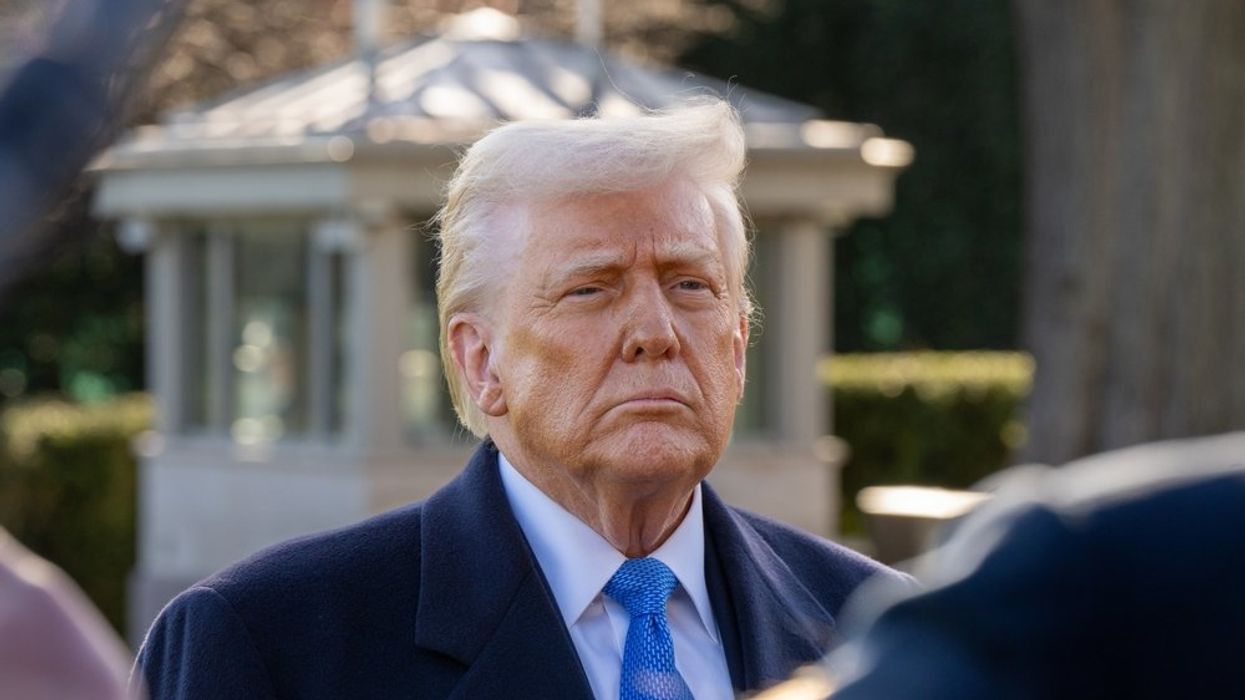'Fake': How Trump is swindling 'gullible young men' with his latest 'scam'

President Donald Trump on March 21, 2025 (Joey Sussman/Shutterstock.com)
President Donald Trump on March 21, 2025 (Joey Sussman/Shutterstock.com)

President Donald Trump on March 21, 2025 (Joey Sussman/Shutterstock.com)
During President Donald Trump's four months back in the White House, tech CEOs who were critical of him in the past — including Facebook's Mark Zuckerberg and Amazon's Jeff Bezos — have been trying to make peace with him. And Tesla/SpaceX/X.com CEO Elon Musk is among Trump's close allies.
Trump clearly views the tech world as an opportunity to make money. And in an article published by The Guardian on May 30, Brisbane, Australia-based journalist Matt Shea describes one of Trump's ways to fleece "gullible young men" via "fake money."
Trump, according to the article, is pushing a "get-rich-quick scheme."
READ MORE: QAnon follower gets 3 years for threatening to ‘execute’ AZ governor Katie Hobbs
Trump, in 2025, is much more bullish on cryptocurrencies, include memecoins, than he was in the past. Shea, in his article, makes it clear that he has a low opinion of the technology — and argues that Trump-related memecoins will be profitable for Trump himself more than those who buy them.
Describing cryptocurrencies as nonsense and memecoins as "consciously" nonsense, Shea writes, "In their essence, memecoins distill the attention economy into a tradable asset, monetizing the ebb and flow of viral internet hype. This has created a system in which the biggest attention-seekers on the planet — Logan Paul, Andrew Tate, Elon Musk, Donald Trump — can bleed their followers for profit. The more controversial they are, the more viral they are; and the more viral they are, the more their memecoins increase in value."
"Most memecoins," according to Shea, "end up making money for the person who makes them as a 'rug pull' or a 'pump and dump'" — although in the long run, they aren't a good investment for those who buy them.
David Gerard, author of the book "Attack of the 50 Foot Blockchain," described memecoins as "fake money," telling The Guardian, "They own the fake money, but they can't sell it until it's unlocked in tranches. Note that the limits are artificial. I mean, they could just 'print' more."
READ MORE: Inside Ron Johnson's barrage of baffling lies
Journalist Sander Lutz describes memecoins as a "scam," arguing that some people are willing be scammed.
Lutz told The Guardian, "Another way of defining a memecoin is a cryptocurrency token that has an acknowledged inherent lack of value. The crypto world, outside of memecoins, is full of so many people who are trying to pitch you on tokens that are 'actually really profound' or 'represent a stake' in some kind of 'useful network,' but are equally worthless. What makes memecoins different is that there's none of that noise…. Crypto has been an ever-escalating series of get-rich-quick schemes, where a whole bunch of people think that they're smarter operators than the previous operator — and generally, they're not….. They think they'll hear about these scams before the rug is pulled — but actually, they're the suckers."
Lutz added, "Crypto is full of people who think they're the scammer, not the sucker."
READ MORE: Behind the half-baked arguments flailing bully Trump uses to attack public media
Read Matt Shea's full article for The Guardian at this link.